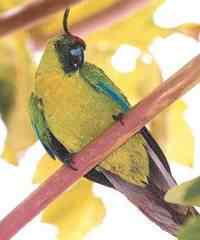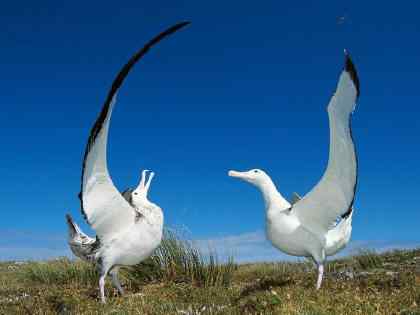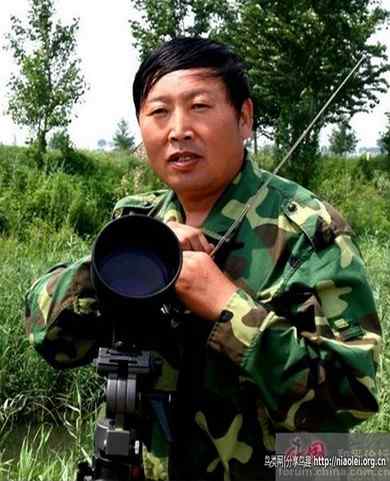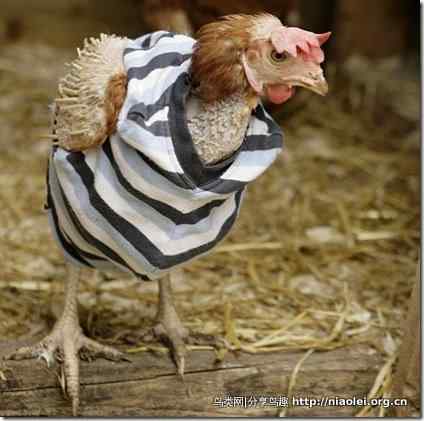土叙合作救隐鹮
土耳其赠送六只半人工繁殖的隐鹮给叙利亚,希望能加强这个中东的最后隐鹮种群。
Donation of ibis gives Middle East's rarest bird renewed hope of survival
13-07-2010
In the time of the pharaohs, Northern Bald Ibis Geronticus eremita was highly revered as of special significance and even had its own hieroglyphic symbol. But now this bird has become the rarest in the Middle East – with just three wild individuals in Syria, plus one juvenile reared this year. Formerly thought to be extinct in the wild in the Middle East, in 2002 researchers were delighted when they discovered a tiny population near the ancient city of Palmyra in Syria, their last known refuge in the region.
The Turkish Government (Nature Protection and National Parks) has donated six semi-captive birds from Turkey which have been taken to Syria in the hope they can prevent the disappearance of the wild Middle Eastern population. Two of these have been fitted with satellite transmitters and, with expert help, have been carefully introduced to the wild birds in the hope they will follow the wild bird and, ultimately, bolster the precariously small population. Meanwhile the Syrian General Commission for Al Badia Management has built aviaries where the remaining birds will be kept for breeding and future releases of juveniles.
Two of the wild adult birds and the released juveniles have been fitted with satellite tracking devices, allowing researchers to monitor their movements. It is known the adult birds travel to Ethiopia to spend the winter, but the wintering grounds of the juveniles is incompletely known. A team of biologists will also be attempting to locate the birds on the ground, and to record habitat details and ensure that no illegal hunting takes place.
This operation is the result of a major international collaboration of efforts between conservation NGOs, Governments, researchers, funders and individuals. It is this kind of joined-up conservation that is needed to protect migratory birds on their routes through different countries.
Ali Hammoud, Director General of Syrian GCB said, "This is by far the biggest conservation partnership in the region to save the tiny Ibis colony from the brink of extinction. With such collaboration and despite of the challenges, the supplementation attempt is already a triumph."
Yaşar Dostbil, the Director of Nature Protection and National Parks Directorate, in Turkey said, "This is one of the best conservation studies ever carried out on a species seriously threatened with extinction. We are very glad to be a part of these efforts."
The seven adult birds discovered in 2002 had by this year dwindled to just three, despite extensive protection in Syria. There is increasing evidence that hunting and other pressures outside the breeding grounds have driven this decline, and satellite tracking the birds is a major tool for understanding and addressing the problems.
Northern Bald Ibis is listed as Critically Endangered (the very highest category of threat) by BirdLife International on behalf of the IUCN. In addition to the tiny Syrian population, the bird has two further wild colonies, in south-west Morocco, where the population totals just 100 breeding pairs.
To follow the progress of the birds on the web, please visit: www.rspb.org.uk/ibistracking
Many organisations have provided financial help and assistance to the project, including
[list]
[*]The Syrian General Commission for Al Badia Management and Development constructed the aviaries. GCB is the local project partner in Syria and ‘Species Guardian’;
[*]Turkish Ministry of Environment and Forestry, Directorate of Nature Protection and National Parks, Wildlife Department, who provided the Birecik birds to Syria and technical support to the Syrian team regarding the breeding station to be established in Syria. BirdLife International Middle East coordinates much of this work including the implementation of the Action Plan and has funded several of the activities.
[*]Doğa Derneği (BirdLife Partner in Turkey) and BirdLife Middle East – initiated official links between the Syrian and the Turkish Governments through a meeting in May 2008 and continued to facilitate communications between two countries. Furthermore both organizations coordinated the work on the ground in Turkey and Syria respectively.
[*]Saudi Wildlife Commission (SWC) has helped in surveying stop over areas last year in Saudi Arabia and they are supporting the monitoring program this year.
[*]IUCN Jordan office is a key implementer of the Action Plan and has supported Gianluca Serra’s expert input (also often as a volunteer)
[*]Waldrappteam (Austria) has provided technical input including Barbara Riedler and Norbert Lechner in the field
[*]RSPB - BirdLife Partner in the UK - has provided satellite tags and expertise, and funded other costs including technical expertise of Dr Lubomir Peske
[*]International advisory Group for Northern Bald Ibis (IAGNBI) provided ongoing expertise and input.
[*]Prince Albert II of Monaco Foundation has been a key donor to the emergency action plan and Ibis conservation program as a whole. It has become the BirdLife Species Champion for Northern Bald Ibis.
[*]The British Birdwatching Fair and Netherlands Embassy in Damascus have also supported the program
[*]National Geographical Society grant funded most of the current expedition to Saudi Arabia.
[*]Austrian Zoo Association provided funds including the pre-release aviary
[*]In addition: technical expertise was sought from Austria, Italy and the Czech Republic;
[/list]
Finally, the activities are under the patronage of the Syrian First Lady, H.E. Mrs Assad. Mrs Amine Erdogan, the wife to the Turkish Prime Minister, has also personally supported the effort.













发表评论:
◎欢迎参与讨论,请在这里发表您的提问或看法,交流您的观点。